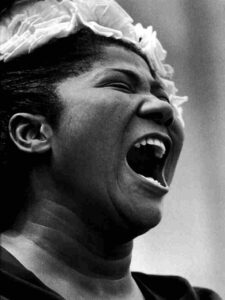A Man’s Good Health is His Greatest Wealth
June is National Men’s Health Month, a time to remind men of the health issues they face and what they can do to take better care of their health. Generally, men are notorious for not being proactive about their health. Reluctance about health and illness prevention is part of the reason behind Men’s Health Month. Men often need a series of subtle reminders to think about and prioritize their health.
According to Healthy People 2030, on average, men in the United States die nearly 6 years earlier than women and are at higher risk for many serious diseases, including heart disease, lung cancer, and HIV. Only 60 percent of men go to the doctor for an annual checkup, and 40 percent won’t go until something is seriously wrong. Mental health is also a concern in men. Interventions to reduce smoking and drinking and promote healthy behaviors also can help prevent diseases and improve men’s health.
Here are some other important considerations about men’s health:
- Blood Pressure: If you have a blood pressure of <120/80 mm Hg, it is within a normal range and it increases slightly with age. It’s important to track blood pressure because high blood pressure or hypertension (130/80 mm or higher) means the heart is working harder to pump blood and increases the risk of heart attack, stroke, and other diseases.
- Weight: A normal body mass index (BMI) for men is 18.5 to 24.9. For example, someone who is 6 feet tall can weigh up to 183 pounds and be considered at a healthy weight. Follow up with your doctor to understand what your appropriate weight and BMI should be. Also, a preferred cholesterol range should be less than 200 mg/dL.
- Sugar: Keeping check for high blood sugar levels with an A1C test can help screen for diabetes. An A1C result below 5.7% is considered normal, 5.7% to 6.4% may be a sign of prediabetes, and 6.5% or higher may be a sign of diabetes.
- Sleep: You should strive to get 7 to 9 hours of sleep as an adult. Poor sleep habits may bring a higher risk for chronic disease. Consult with your doctor if you are having issues getting restful sleep.
- Sex: About 30 million men have erectile dysfunction (ED) in the United States. ED may be influenced by smoking, obesity, diabetes, and sedentary lifestyle. Every man is unique, so talk with your doctor about the numbers and screenings right for you.
Resources:
Men’s Health Month 2024 Toolkit provided by the U.S. Department of Health & Human Services Office of Minority Health: https://minorityhealth.hhs.gov/mens-health-month-2024-toolkit
Men’s mental health facts: https://mhanational.org/infographic-mental-health-men
Music --the Soul of the Movement Past, Present and Future

"Jazz speaks for life. The blues tell the story of life's difficulties — and, if you think for a moment, you realize that they take the hardest realities of life and put them into music, only to come out with some new hope or sense of triumph. This is triumphant music." – Martin Luther King, Jr
June is Black Music Month. Black music has had an indelible impact on the Civil Rights Movement and the ongoing struggle for Black liberation. Deeply rooted in African tradition, music, and Black American resistance have gone hand in hand since before our country’s founding. Black Americans have used the power of music in countless ways; inspiring and guiding enslaved people toward freedom, forging alliances among protestors, and, most recently mobilizing millions to combat police brutality.
Music is a form of storytelling. The use of music in the Civil Rights Movement served as an essential form of communication and community building. Singers and musicians collaborated with Civil Rights leaders to share songs with activists and the community. These songs motivated them through long marches, to push through harassment and brutality, and to cope with the stress and loss of loved ones.
In the rich tapestry of historical melodies, one anthem stands resolute: "We Shall Overcome." Born from the depths of the 19th-century African American Gospel, it found its voice amidst the early throes of the Civil Rights movement. Joan Baez's rendition at the 1963 March on Washington, alongside President Lyndon Johnson's invocation of its lyrics in advocating for the Voting Rights Act of 1965, cemented its status as an emblem of the struggle.
Yet, it was not alone in its resonance. Nina Simone's "Mississippi Goddam" encapsulated the anguish of Medgar Evers' murder and the 16th Street Baptist Church bombing in Birmingham, Alabama. Her repertoire, including "Four Women" and "To Be Young, Gifted and Black," underscored the movement's tumultuous narrative.
Preceding this era, Billie Holiday's "Strange Fruit" painted a chilling tableau of racial terror, evoking the haunting specter of lynching. For Holiday, it was a deeply personal lament, tethered to the memory of her father's tragic death due to racial prejudice.
The Civil Rights Movement, marked by both elation and trepidation, found solace in music's embrace. As they confronted violence and oppression, protesters found strength in song. From the fields of southern plantations to the pulsating rhythms of rock & roll, these melodies served as a beacon of unity and resilience.
Dr. King's assertion that "songs were the soul" of the movement rings true. Whether sung amidst marches or within the confines of jail cells, these anthems provided solace, courage, and a sense of collective purpose.
Across generations, the legacy of these songs endures. They serve as a testament to the enduring power of music in the pursuit of justice and equality, reminding us that the struggle for freedom knows no bounds. The power of these timeless songs will undoubtedly continue to live on to inspire future generations.